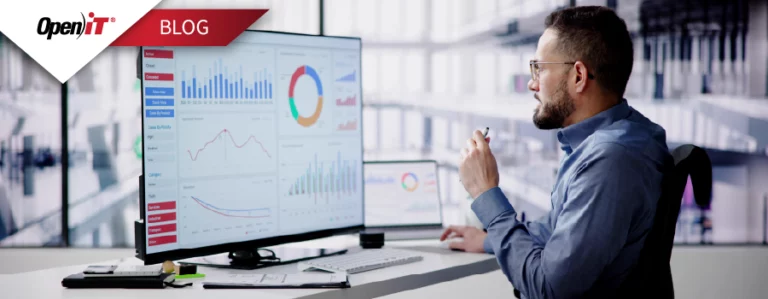Is poor data quality hindering your AI-driven engineering license management initiatives?
Industries reliant on engineering applications—such as manufacturing, energy, automotive, aerospace, and defense—are increasingly turning to artificial intelligence (AI) to enhance their software license management strategies.
But when organizations lack high-quality license utilization data, they face significant obstacles in leveraging AI to manage and optimize their software assets. As software portfolios grow more complex, data quality becomes increasingly challenging. Poor data quality not only hinders AI-driven software license management efforts but also slows down the overall AI adoption process.
Factors Contributing to Poor Data Quality
A fundamental issue in gathering top quality data is the fact that many enterprises don’t see data as a core asset. An alarming 72% of organizations do not recognize data as a strategic priority, leading nearly half to underutilize it for actionable insights. Despite rapid advancements in data analytics, 62% of enterprises still rely on outdated, manual data collection methods or have no clear strategy for modernizing their data management infrastructure.
This lack of prioritization results in persistent integrity issues, with 68% of chief data officers identifying data quality as their most pressing challenge. Furthermore, 40% of organizations report difficulties in maintaining consistent, high-fidelity datasets, directly undermining AI-driven initiatives, particularly in software license management. Without high-quality license utilization data, organizations struggle to harness AI’s full potential in optimizing software assets.
Software Licensing Complexities Exacerbate Data Quality Challenges
The intricate nature of software licensing further complicates efforts to maintain high-quality data for AI-driven license management.
Fragmented Software Ecosystems – Hybrid licensing environments spanning on-premises, cloud-based, and SaaS models generate disparate data streams, complicating aggregation and analysis.
Inconsistent Data Formats – Variability in data structures across engineering applications and license managers necessitates extensive normalization and feature mapping before AI models can extract meaningful insights.
Lack of Granular Insights – Native reporting tools often provide high-level summaries rather than detailed usage metrics, limiting AI’s ability to optimize license allocation.
72% of organizations fail to see data as a strategic priority—hindering the successful implementation of AI initiatives.
Data Silos – License utilization data is frequently confined to isolated systems, obstructing holistic visibility into software consumption across the enterprise.
Inaccurate or Incomplete Records – Erroneous or missing data skews AI-driven analytics, leading to suboptimal decision-making and compliance risks.
Addressing these complexities requires a solution that can seamlessly aggregate, standardize, and analyze multi-source license usage data with a high degree of accuracy.
How Does Open iT Ensure Data Quality and Enable AI License Management?
A pioneer in software license management, Open iT specializes in helping organizations collect, normalize, and analyze license utilization data to ensure AI initiatives have access to the highest-quality datasets. Here’s how Open iT enhances AI-driven license management:
Comprehensive Data Collection Across Platforms
Open iT aggregates license usage data from a wide array of sources, including cloud-based, on-premises, and hybrid environments. This eliminates data fragmentation and provides a complete and tailored view of software consumption.
Advanced Data Normalization and Standardization
AI models require clean and structured data for accurate predictions. Open iT applies robust normalization techniques to standardize data across multiple licensing systems, making it AI-ready.
Granular License Utilization Insights
Unlike standard license reporting tools, Open iT provides in-depth data on license usage, including who is using the licenses, for how long, and whether the usage aligns with licensing terms. It also captures peak and idle periods, as well as user- and department-specific consumption trends. This level of granularity enables AI-driven models to optimize license allocations, predict future requirements, and identify opportunities for cost reduction.
Eliminating Data Silos with Centralized Visibility
Open iT creates a centralized data repository, breaking down silos and providing organizations with a single source of truth for license utilization. This allows AI algorithms to access complete datasets without requiring manual data consolidation.
Ensuring Data Accuracy and Reliability
Open iT employs automated data validation techniques to detect inconsistencies, ensuring that AI models are fed with reliable and high-fidelity data. This minimizes the risks of poor decision-making due to inaccurate records.
Data Quality: Key to AI-Enabled Software License Management
AI-driven license management offers immense potential, but its effectiveness is only as good as the data it processes. Organizations seeking to harness AI for optimizing software assets must prioritize data quality as the foundation of their strategy. Open iT provides the tools needed to bridge the data gap, ensuring that AI initiatives deliver tangible business value. With precise, standardized, and actionable insights, Open iT empowers enterprises to optimize software assets, eliminate inefficiencies, and accelerate AI adoption.
Fuel your AI strategy with the right data. Contact Open iT today






